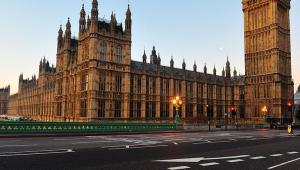01 December 2006
An all-too familiar debate was reignited this week as ministers unveiled the provisional local government grant settlement for 2007/08. Councils were quick to warn that they faced tough choices between inflation-busting council tax increases and service cuts.
While the government heralded a £3.1bn boost for councils – 4.9% more than last year – town hall leaders muttered that the current funding system was not sustainable.
Given that last year's grant was a two-year settlement, there were few surprises for councils. Steve Lord, director of local government finance at London Councils, told Public Finance: 'Because we are moving to three-year settlements [after next year's Comprehensive Spending Review], the government had to make this one stick. Formula grant is exactly as announced in January, down to the last pound.'
All top-tier authorities received a funding boost of at least 2.7%, as did shire districts and fire and rescue authorities. The funding floor for police authorities was set at 3.6%.
Confirming the details to Parliament on November 28, local government minister Phil Woolas said the government was providing 'stable and predictable funding'.
'There should be no more hikes in council tax levels or talks of cuts in services,' he said. 'Councils should be able to plan better over the longer term, using the increased investment in local government funding to address local service priorities.'
But he reiterated that he would cap the budgets of councils whose tax rose by more than 5%. 'Local government should be under no illusions: if there are excessive increases, we will take capping action – as we have done over the past three years,' he said.
Local Government Association chair Sandy Bruce-Lockhart conceded that the two-year deal was helpful, but added that councils were still left facing a dilemma as demand for services continued to rise.
'In the past ten years, for services other than schools and other specific grant-funded government priorities, government funding to councils has increased by just 14% in real terms. This is in stark contrast to the 90% provided to the NHS. It is the council tax payer that has funded the “unprecedented increase in spending”, as government grant has not kept pace with the demands on local government.'
Steve Galloway, leader of City of York Council, which was nominated for capping last year, told Public Finance that its expected 3.2% grant increase barely took account of inflation, and some services would have to be squeezed. Increasing demand for complex care packages was putting a strain on the adult social services budget, with the cost of some packages topping £80,000 a year.
'It's those kind of demands we don't think the government has properly appreciated… We will have to re-prioritise,' he said.
The LGA is appealing to Sir Michael Lyons – due to deliver his report on the future shape of local government this month – to find a funding system that is both fair to the local taxpayer and meets service demands.
Bruce-Lockhart said: 'There are crucial decisions that have to be made by ministers within the next few months about how local government services will be funded in the coming decade.
'There must be a grown-up conversation about who is going to pay for increasing numbers of elderly people and rising costs from government and European Union legislation for services such as waste disposal.'
But town halls remain sceptical about Lyons. Lord said there was 'no chance' of him backing a sales tax or local income tax. 'I can't see any major change to the council tax. Whether he will be brave enough to call for revaluation remains to be seen,' he told PF.
He added that the picture in the capital was fairly bleak, with 20 authorities on the funding floor and even in those above, 'the increase is pretty constrained'.
London Councils chair Merrick Cockell said: 'We have consistently voiced concerns about the inadequate way London's population is measured. The current system fails to take account of London's rapidly growing population and its changing needs – and means that boroughs do not receive the funding they require.'
PFdec2006


















